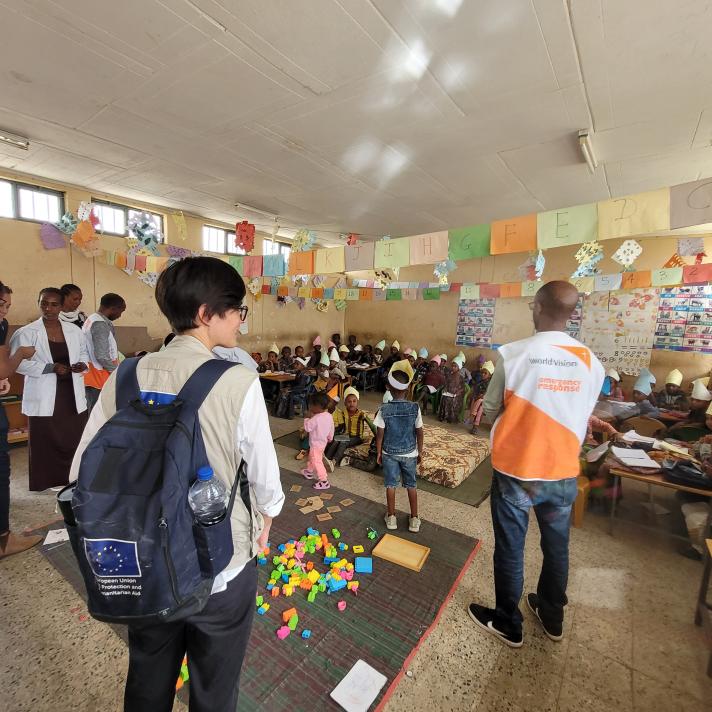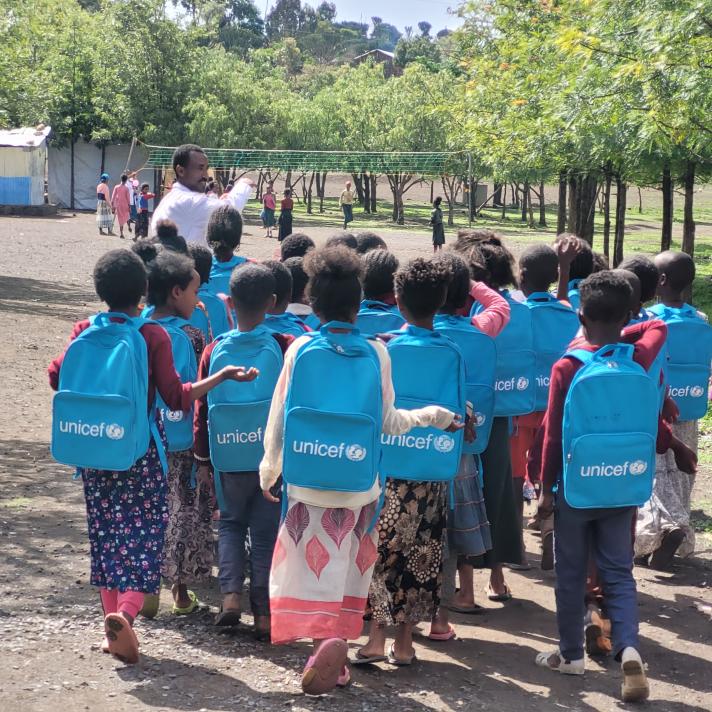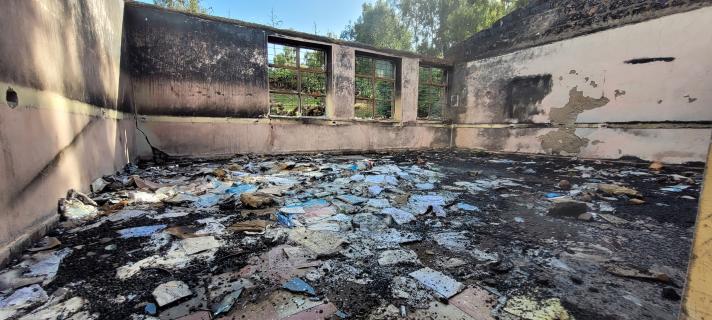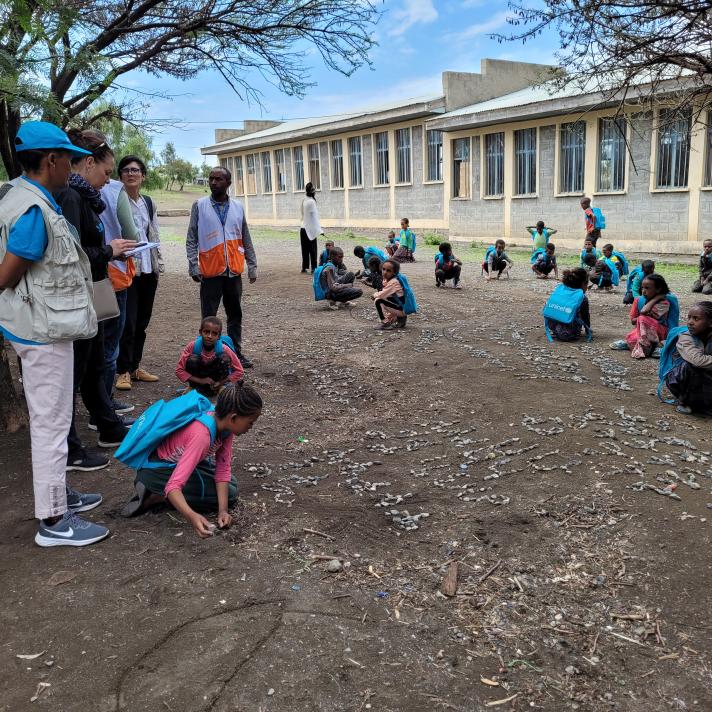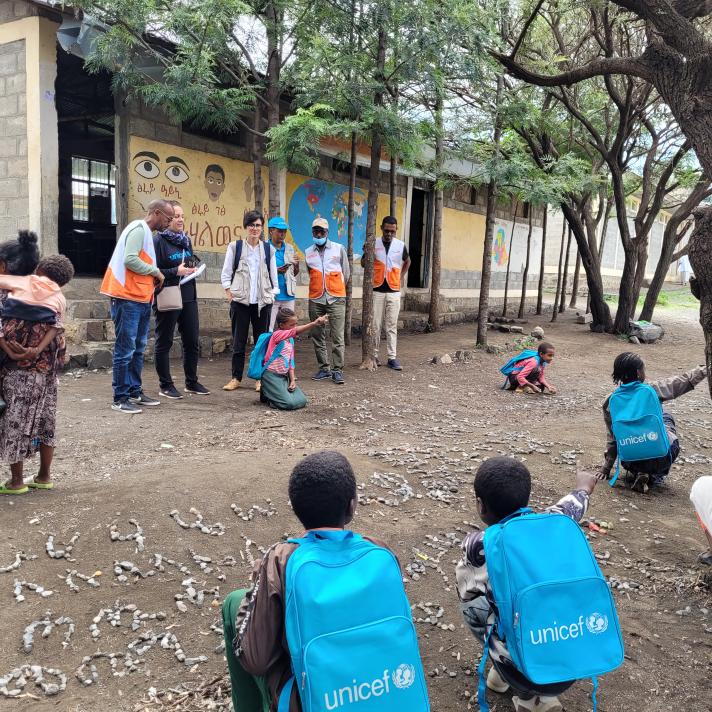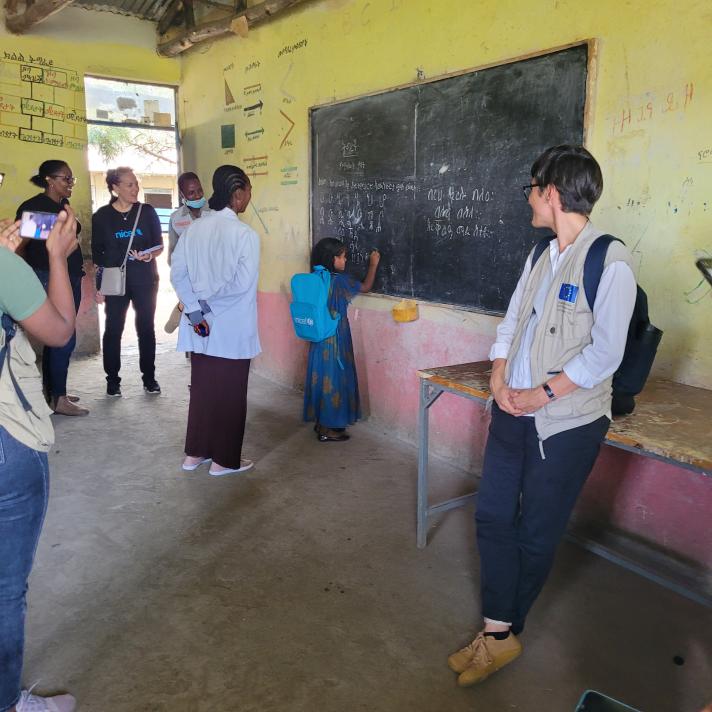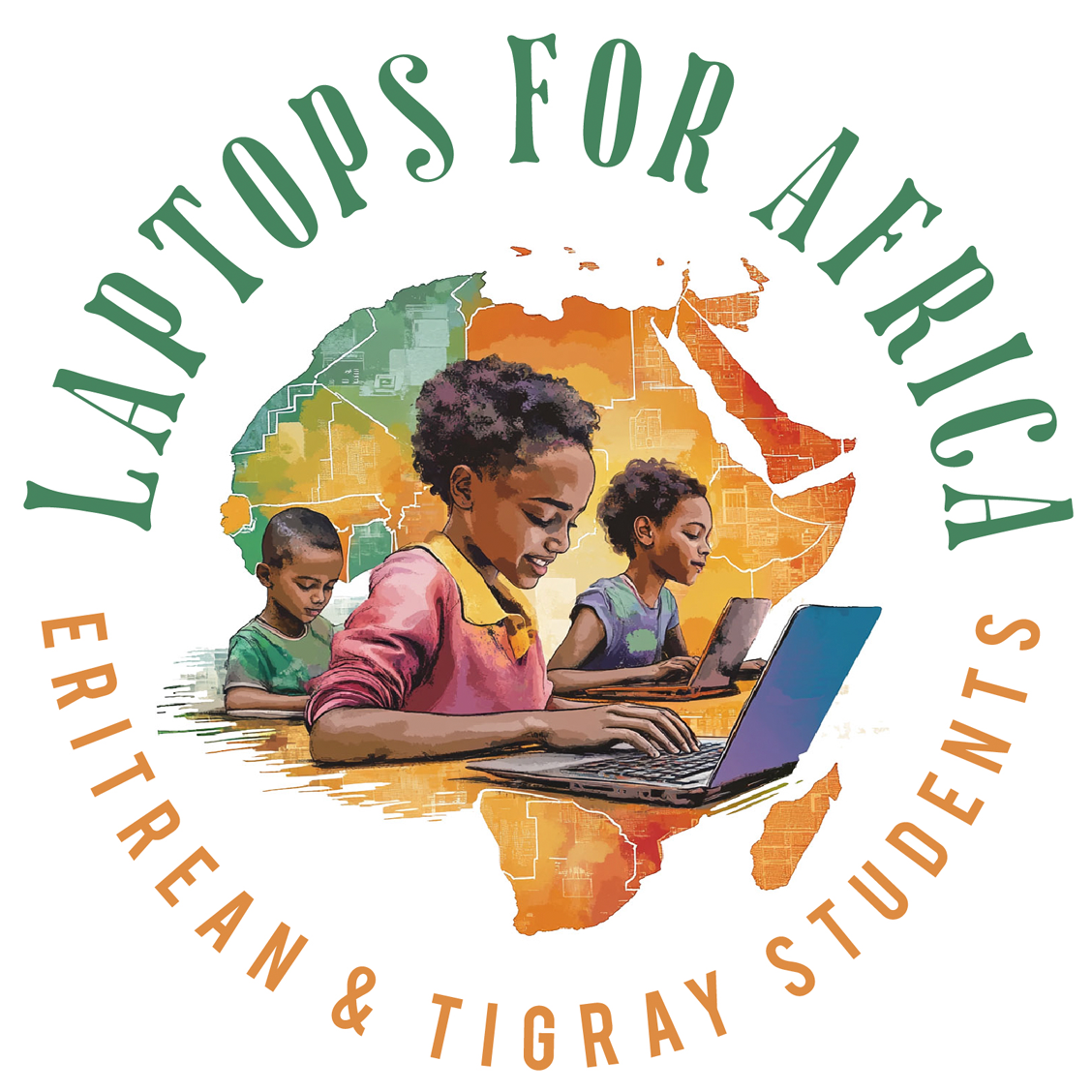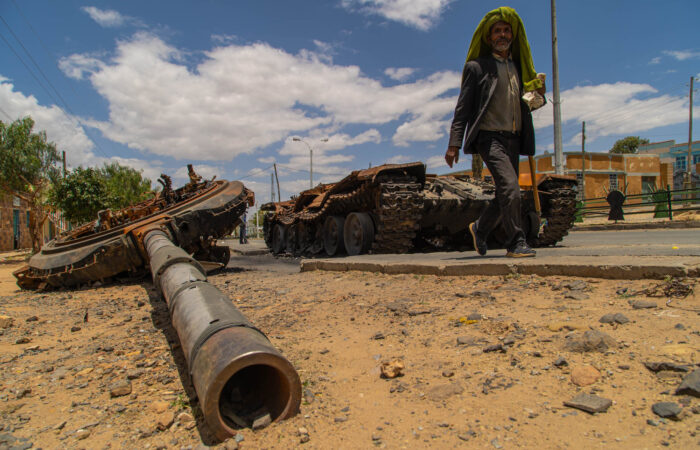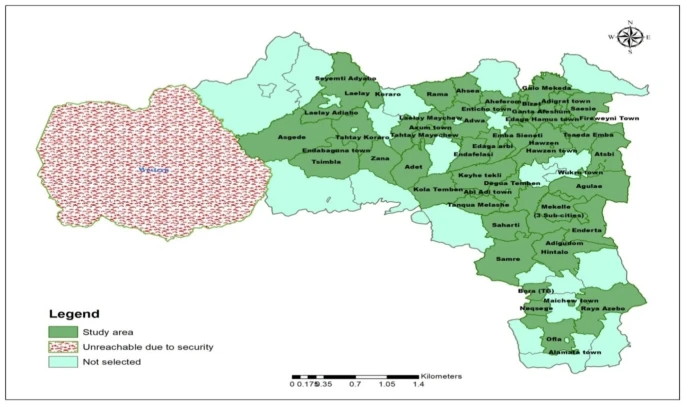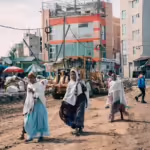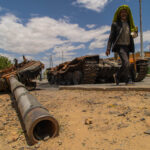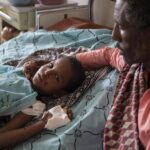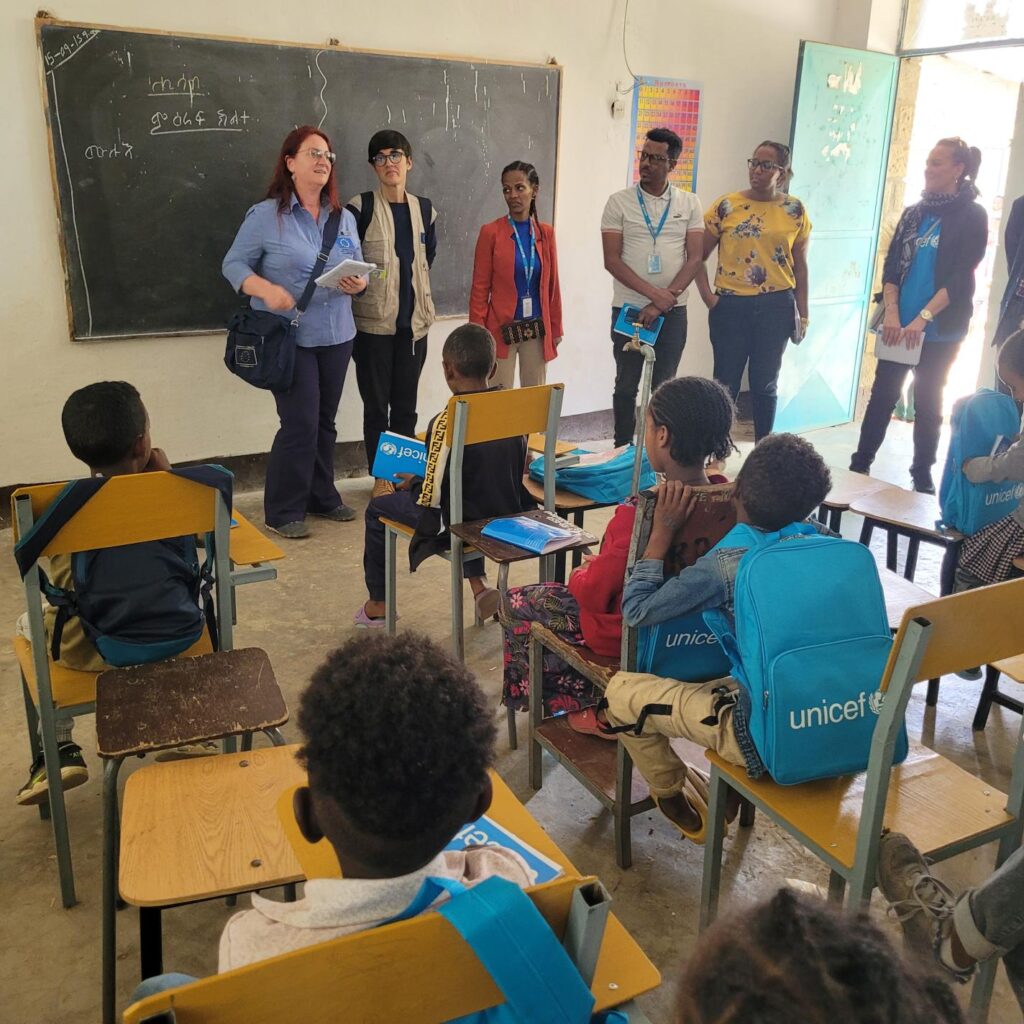
For 2 years – between November 2020 and November 2022 – northern Ethiopia saw a devastating conflict that brought widespread suffering, hardship, and trauma amongst the civilian population.
Unlawful killings and atrocities, horrific sexual- and gender-based violence, and millions forced into displacement and destitution. Tens of thousands sought refuge in neighbouring Sudan – from where some were forced to flee yet again after conflict broke out in that country in April 2023.
The acute humanitarian crisis in northern Ethiopia meant people suffering from rampant and critical food insecurity, collapsed health systems, and destroyed vital infrastructure.
In late 2022, more than 13 million people were estimated to need life-saving food assistance, of which more than 5 million were in the Tigray region (90% of the population. This region has been cut off from assistance and basic services for most of the duration of the conflict.
With humanitarian needs in northern Ethiopia still critical in the aftermath of the conflict, in 2023, the EU allocated €82.5 million to humanitarian projects in Ethiopia, including actions that are helping to address the needs of the vulnerable in northern Ethiopia.
We are giving particular attention to children in conflict by:
- helping provide education for the millions of children unable to attend school for 3 years (also due to COVID-19)
- ensuring the protection of at-risk children, such as children who have lost their main carers or who had been previously engaged in conflict and now need to be reintegrated in society.
According to Ethiopia Education Cluster, as of April 2023, 85% of the schools were either severely or partially damaged.
By April 2023, more than 2.3 million children were out of school in Tigray alone, despite the secession of hostilities in November 2022. Some 1.377 schools out of the 2.249 had reopened by 1 May 2023 while 93 schools are still being used to shelter internally displaced persons.
Our colleagues Silvya Bolliger, who works in the EU’s humanitarian office in Addis Ababa, Ethiopia, and Maria Vargas, Regional protection expert, visited education facilities in Tigray.
These facilities also offer child protection activities. Here, EU humanitarian funding is helping (i) provide safe learning environments, (ii) develop teachers’ capacity – including in response to children’s psycho-social support needs –, (iii) provide formal and non-formal education opportunities and, (iv) help families with cash so that they can get the educational materials their children need.
